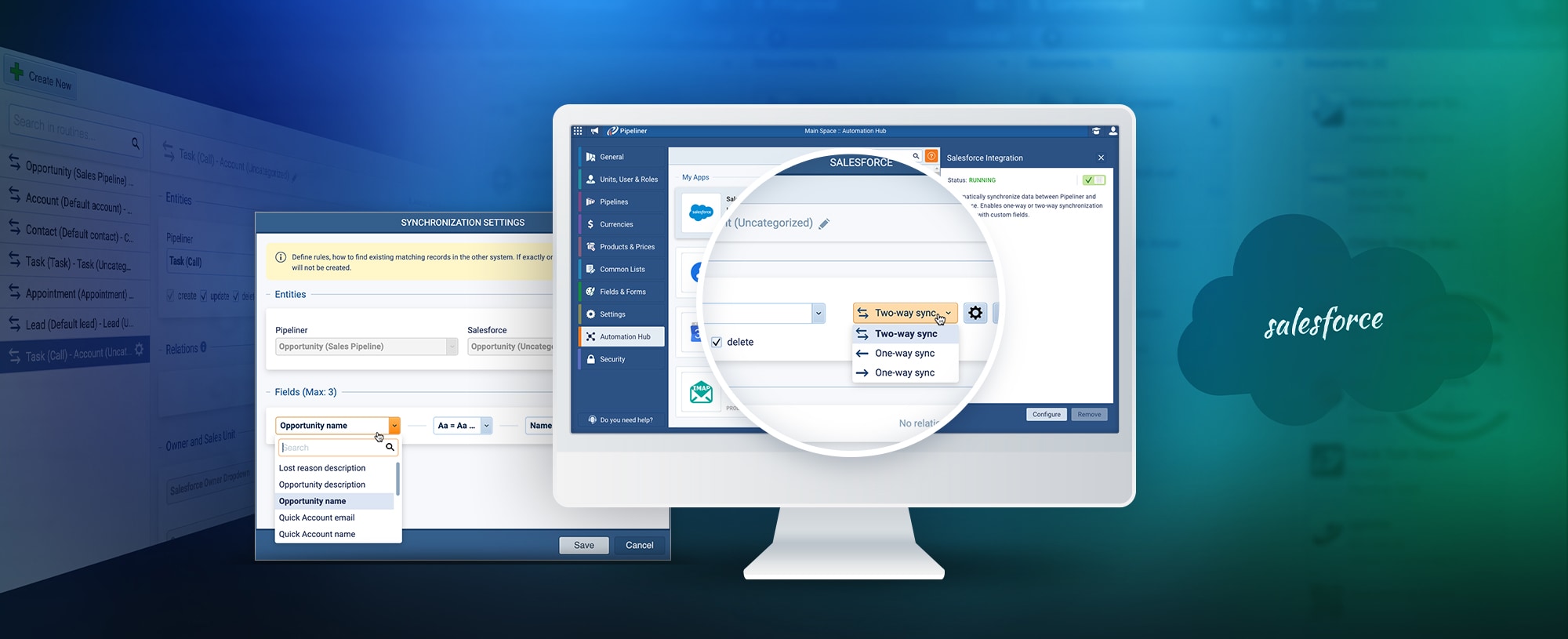For any company involved with sales, accountAccount Account refers to a record of primary and background information about an individual or corporate customer, including contact data, preferred services, and transactions with your company. management is crucial and requires a vastly different skillset and toolset than winning new sales.
What is Account Management?
The core concept of account management is that winning a new account is more costly and difficult than maintaining and upsellingUpselling Upselling is a selling technique where a seller introduces a more expensive, an upgrade, or add-on to a buyer to increase the average order value. an existing account. Yet account management still requires planning, resources, time, and energy. Account management maintains customers beyond the basic SaaSSaaS SaaS is an acronym for Software as a Service. approach. Also, account management needs to be embedded in CRM—and in the next few months, we will be expanding Pipeliner’s account management capabilities.
Account management has to do with the size of the account, planning how much revenueRevenue Revenue is the amount of money a business generates during a specific period such as a year or a quarter; also called sales. you expect from the account, plans for enlarging the account, and strategies for cross-sellingCross-selling Cross-selling B2B is when a customer purchases a product and they are offered a second product at a discount or as a reward. and upselling. Of course, research must occur before planning, so that you understand which account even makes sense to plan for. Some accounts have high potential, and others low potential. You must look over your accounts, and decide which are strategically important.
The Right People
This planning must include the account rep who will be consistently managing and selling into accounts. As I said in the beginning, account management has its own skill set above and beyond just that of selling. Additionally, an account manager must be positively supported by technology so that they can immediately see all the potential, possibilities, and issues of any particular account.
Nature of Accounts
Many times accounts should be strategically managed due to the size of the account. Working with a large enterpriseEnterprise Enterprise (in the context of sales) is a relatively large organization typically composed of multiple levels, locations, and departments which need multi-layer software systems that support collaboration across a large corporate environment. is very different from working with a young, dynamic company striving to move forward. Where there is a parent company and subsidiaries, there are issues specific to selling and account-managing them. One issue can be that despite a company being a subsidiary of a parent company, it can have relative autonomy to make its own business decisions.
In such a situation, it is obviously best to win the parent company’s business before that of the subsidiaries. But in reality, unless your company is a substantial enterprise in itself, you’ll often be dealing with subsidiary companies or even departments of a subsidiary or parent companies. It’s more like a grassroots movement because you’re working from the bottom up instead of the top down. How you proceed should be part of your overall planning—you might start with one department and spread out to 20.
Politics
One risk you take when you’re selling to different subsidiaries or different departments: you may be dealing with a lot of internal politics that you’re unaware of. One subsidiary might be favoring one solutionSolution Solution is a combination of ideas, strategies, processes, technologies and services that effectively helps an organization achieve its goals or hurdle its challenges. of your type, and another might be favoring a different one. Because you’re an outside vendor, you won’t have a real insight into the company. Even if you have a “spy”—someone within the company to provide you with “inside skinny”—you may still not have the full picture. Proceed with caution.
Importance
Why is account management so crucial? Because managing accounts did well provides your company with a steady flow of revenue. Efficient account management builds strong relationships, and through that provides predictability. You’re able to say with confidence a particular account will bring a certain amount of revenue in the coming year.
In this series, we’ll go into considerable detail about account management: planning, commissionCommission Commission is the amount of money a sales professional earns for reaching a specific sales volume or for executing one or more business transactions. structure, and the approach to activities.





